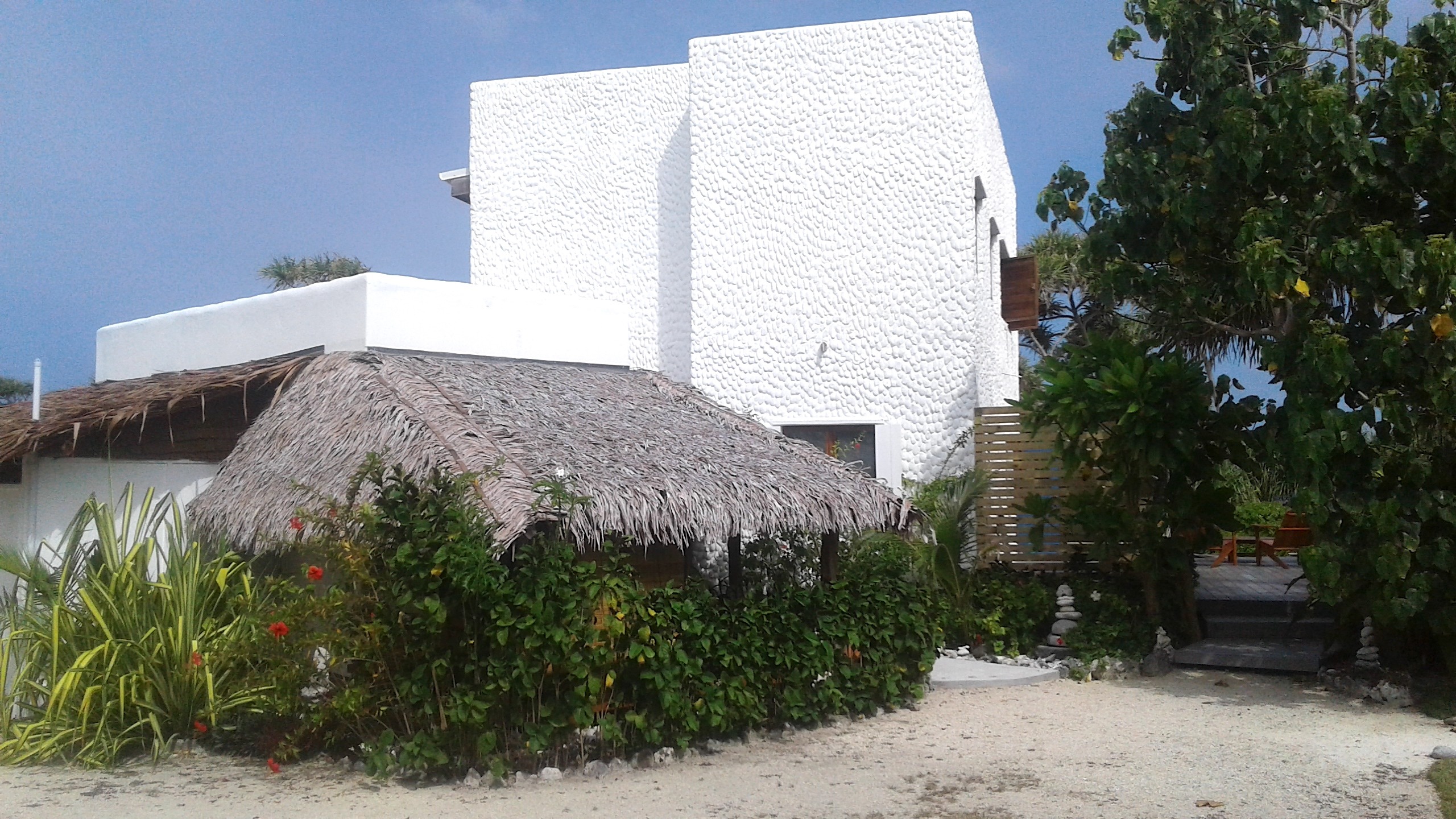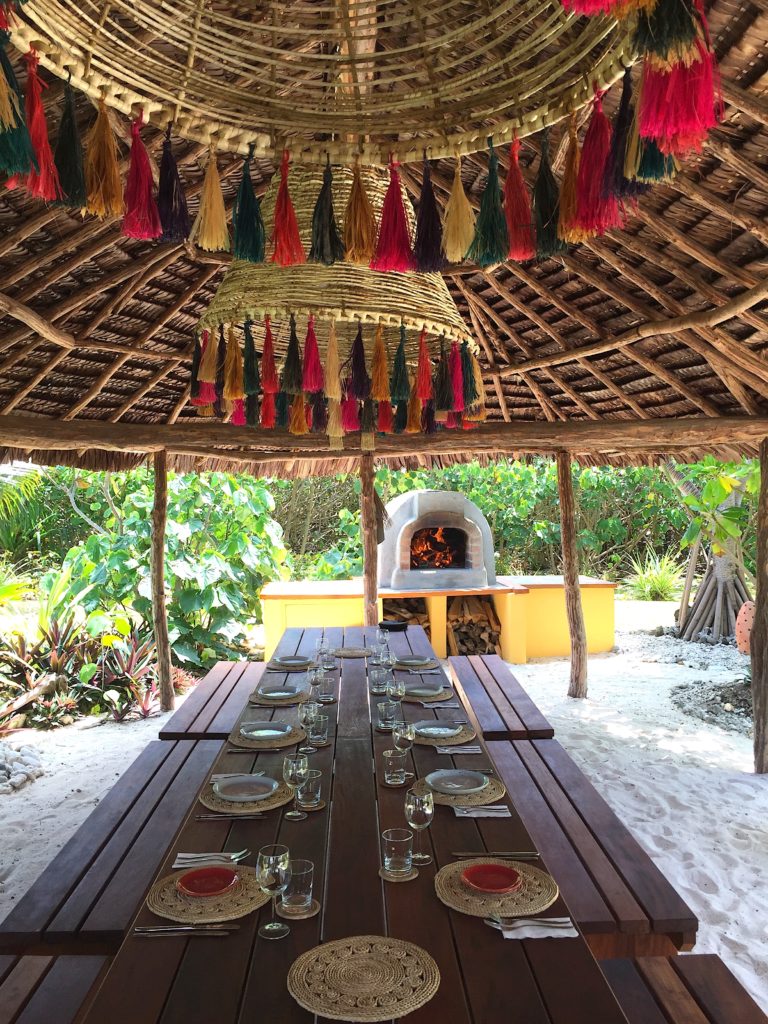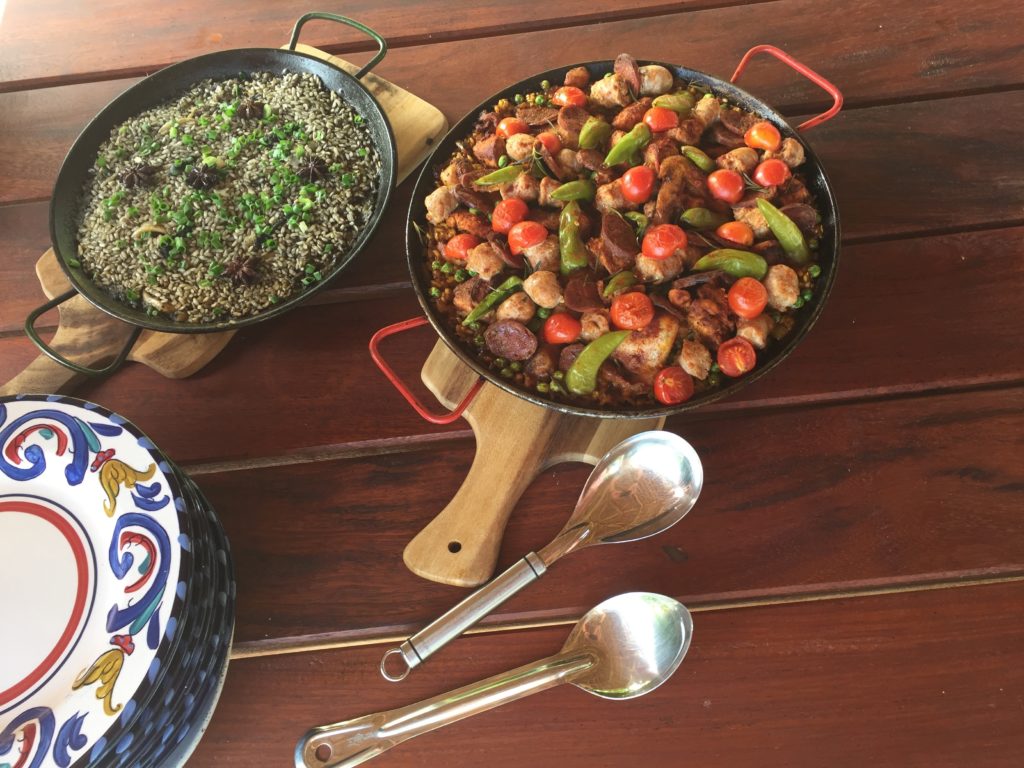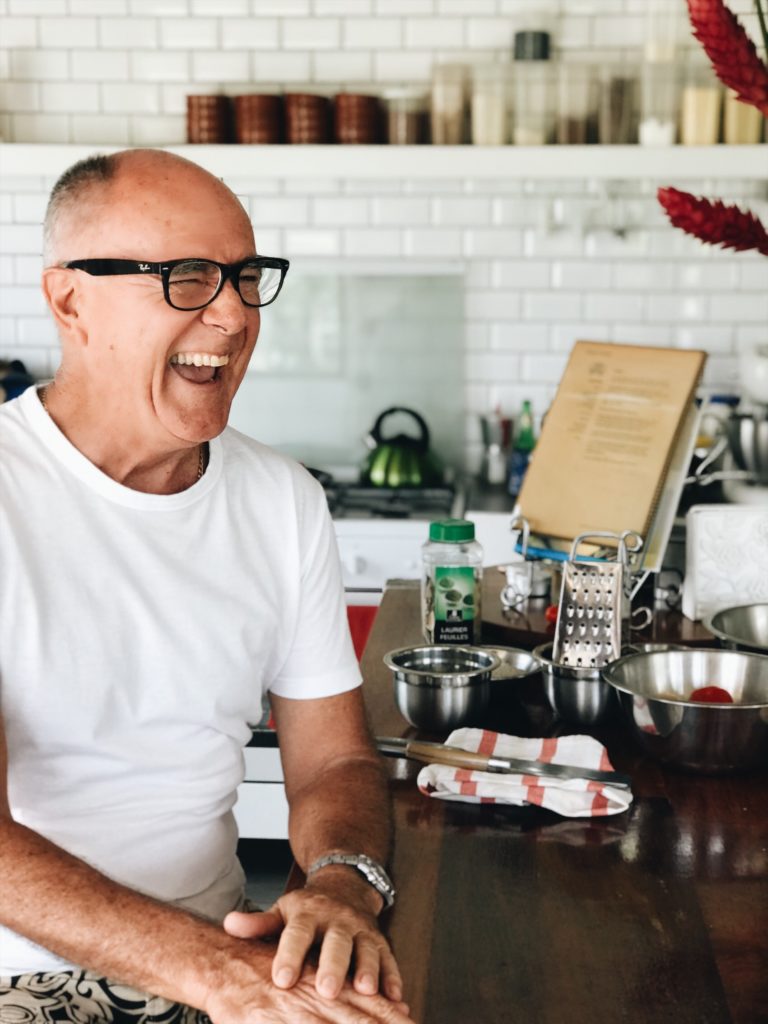Dine
Off the grid – No News, No Shoes
Two former Australian hospitality veterans decided to combine their passion for the Pacific and food to create an intimate jewel of a getaway on a pristine stretch of Vanuatu beachfront. By Craig Osment.
February 8, 2020
Pacific Island Living
February 8, 2020Many resorts and B&Bs claim to offer the ultimate in understated island getaways but not many achieve their goals to the level of perfection offered by Papaya Villa on the Vanuatu island of Efaté’s east coast. The proprietors, Marcus and Stoney Xavier, first considered a move to Vanuatu in the eighties but the hotel they were looking to buy blew away in a cyclone, so that was a deal breaker – but not the end of their ambition to relocate from Australia. Fifteen years later they found their ideal location and after sealing the new deal on a serviette at the Grand Hotel in Port Vila, over the next three years brought their dream to fruition.
Their joint hospitality credentials include having operated businesses on Hamilton Island, being involved in the opening of Brisbane’s Hilton Hotel, running a catering company on Queensland’s Gold Coast, overseeing Alan Bond’s former hotel group and for the last nine years operating a cooking school on the Gold Coast which they have re-branded in Vanuatu as Papaya Loco Cooking School. The focus being on Caribbean, Spanish, Portuguese and Island food styles.
Papaya Villa is very much a partnership but one gets the sense it is Marcus’s passion for food that dominates the gastronomy end of the business, although Stoney does produce a pretty stunning sangria to keep guests lubricated while Marcus enthuses about what’s about to emerge from his recently built outdoor wood-fired pizza oven.
His commitment to cooking has a long and illustrious history which is worth recounting – Marcus claims that at age 10-12 when his mates were getting bikes for Christmas he was getting pots and pans. After his parents split he moved in with his uncle and godfather Leorardo, a Paris trained Cordon Bleu chef whose neighbour was none other than famous Australian television chef Bernard King who along with Marcus learnt many of his cooking skills from Leorardo. So, the training started early and was undertaken by experts. In spite of having been inculcated with these skills Marcus decided to take up dentistry – as you would! Eighteen months later he came to his senses and decided he preferred cooking to taking out teeth and has been providing teeth with something to chew on ever since.

His Portuguese background flavours the menu and derives from what Marcus refers to as his being first generation ‘Macanese’ Australian. Macanese = Portuguese rooted in Macau which is the island his forebears moved to from Hong Kong.
After having fled to a monastery when the Japanese invaded during the war his grandfather “sent the family to Australia in fear of further invasions”. But the Portuguese genes live on in the form of his Macanese inspired dishes one of his favourites is translated as ‘fat rice’ a kind of hybrid paella that has so many little surprises when you eat it that it is like a ‘discovery with every spoonful’ says Marcus.
And he’s right as there is “a mountain of protein in a dish of fat rice … not that uninspiring yellow, so-called paella that seems to find its way onto restaurant menus”. As it is he’s not the first Portuguese to arrive in Vanuatu it was they who named Espiritu Santo in 1605 so he’s simply continuing a tradition.
Papaya Villa is not entirely about food though, the location shares equal billing with the cuisine. It’s situated on a 1.6 km stretch of private beachfront within a development known as Eton Reef which encompasses numerous perfectly manicured acres of tropical garden and a plethora of trees. The perfect backdrop for this little piece of paradise at the heart of which is a Portuguese-inspired two-storey building, designed by Marcus, which is finished with a render applied in handfuls which looks like a million hand-made stones, all white with bright blue doors – and a delight to look at. The two guest rooms are equally gorgeous and ooze simple sophistication (and soul thanks to Stoney’s unique design memes) while being completely ‘off the grid’.
The entire place is serviced by rainwater or from a natural aquifer, electricity is solar powered, they say you could call it a battery operated house while the septic system is self contained and run by “some amazing technology that we purchased from an old farmer in NZ. Incredible technology that uses no power.”

On arrival guests are briefed by Stoney (her original full name was Sharon Stone! So hence the Stoney label) on how easy it is to live off grid even down to little portable solar lights in jars for night time excursions. None of this is at the expense of comfort with the most expensive items in the two rooms being the beds which Stoney believes “must be comfy … so our guests can have an amazing night’s sleep after a busy day of beachcombing and eating”.
Speaking of beaches, there are any number of small ‘nakamals’ and fares discreetly scattered along the beach which can be used by guests for sunset drinks or seaside breakfasts there is also a stunning 60-metre lagoon pool hidden among the coral outcrops.

All this makes for a sense of total peaceful perfection backed by Stoney and Marcus’s personal ethos which they explain as “we want our guests to feel like they are staying with old friends and can be comfortable … our mantra is ‘no news – no shoes’ so you can feel at home”. And you do.
PRACTICALITIES: Book at www.papayavilla.com or email marcus@papayavilla.com. They do have satellite so guests can keep sending up those amazing reviews! And they arrange transfers, special trips around Efaté, Pele and Nuna islands and cooking classes.
The extremely reasonable rates include breakfast, while guests can just let Marcus or Stoney know if they are in for dinner and they will be in for a treat – there are no menus, just what’s fresh from the sea (lobsters straight from the reef anyone?) and the markets on the day. Lunches can be provided but most can’t eat all of that food.
© 2024 Pacific Island Living Magazine all Rights Reserved
Website by Power Marketing